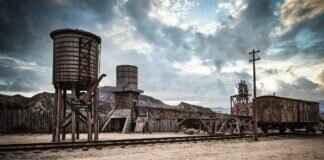The emergence of Ethereum has fundamentally transformed the landscape of non-fungible tokens (NFTs), establishing a dynamic platform for digital ownership and trade. Through its innovative use of smart contracts, Ethereum has not only facilitated the creation of unique digital assets but has also paved the way for a new form of digital interaction that spans various industries, including art, music, and gaming.
The Genesis of NFTs on Ethereum
Ethereum’s introduction of smart contracts was a game-changer, allowing for the minting and trading of NFTs without the need for traditional intermediaries. This innovation has enabled artists and creators to secure their digital works, ensuring authenticity and ownership rights. For example, the digital artist Beeple sold an NFT artwork for $69 million, showcasing the potential of NFTs as a legitimate form of art.
How Smart Contracts Work
Smart contracts function as self-executing agreements where the terms are directly encoded into the blockchain. This mechanism eliminates the need for trust in third parties, thereby enhancing the security and reliability of transactions. Each NFT transaction is recorded on the Ethereum blockchain, providing a transparent history of ownership that is accessible to anyone.
Technical Mechanisms Behind Smart Contracts
The technical architecture of Ethereum’s smart contracts is built on blockchain technology, which ensures that every transaction is immutable and verifiable. The underlying protocols, such as the Ethereum Virtual Machine (EVM), facilitate the execution of these contracts, enabling complex functionalities that support NFT operations.
ERC-721 and ERC-1155 Standards
The development of the ERC-721 and ERC-1155 token standards has been crucial in defining NFTs on Ethereum. ERC-721 allows for the creation of unique tokens, while ERC-1155 supports both unique and semi-fungible tokens, adding versatility to the NFT market. These standards have helped establish a robust ecosystem for creators and collectors alike.
Gas Fees and Their Implications
Gas fees, which are the costs associated with transactions on the Ethereum network, can significantly impact NFT trading. High gas prices may deter potential buyers and sellers, making it essential for participants to be aware of these costs. Understanding how gas fees fluctuate can help users strategize their transactions effectively.
Challenges in the NFT Ecosystem
Despite its rapid growth, the NFT market faces several challenges, including environmental concerns due to Ethereum’s proof-of-work consensus mechanism, which is energy-intensive. Additionally, copyright issues and market volatility pose risks that could hinder further investment and participation in the space.
Environmental Concerns of Ethereum
The environmental impact of NFT transactions has garnered significant attention, leading to discussions about Ethereum’s sustainability. The transition from proof-of-work to proof-of-stake aims to mitigate these concerns by drastically reducing energy consumption associated with transactions.
Market Trends and Future Projections
The NFT market is evolving rapidly, with trends indicating increased adoption across various sectors. Major brands and artists entering the space are driving mainstream acceptance, reshaping perceptions around digital assets. As interoperability between different blockchain networks improves, the NFT landscape is likely to expand further, allowing for seamless movement of assets across platforms.
Conclusion: The Future of NFTs on Ethereum
As Ethereum continues to innovate and adapt, its influence on the NFT market is expected to grow. Stakeholders must understand these dynamics to navigate this digital frontier effectively, ensuring that they remain informed and strategically positioned within this transformative ecosystem.
![The Impact of Ethereum on the NFT Market 1 [The Genesis of NFTs on Ethereum]](https://indonewyork.com/wp-content/uploads/2025/04/the-impact-of-ethereum-on-the-nft-market_1.png)
[The Genesis of NFTs on Ethereum]
The emergence of non-fungible tokens (NFTs) on the Ethereum blockchain has marked a pivotal moment in the realm of digital assets. By leveraging Ethereum’s advanced smart contract functionality, creators can now mint unique digital items that can be bought, sold, and traded, thus establishing verifiable ownership and provenance. This innovation has not only transformed the art world but has also significantly impacted industries such as music and gaming, creating new avenues for creators and collectors alike.
Smart contracts, which are self-executing contracts with the terms directly written into code, play a crucial role in the NFT ecosystem. They automate processes and eliminate the need for intermediaries, ensuring that the authenticity and ownership of NFTs are maintained. For instance, when an artist mints an NFT, the smart contract records the transaction on the blockchain, making it immutable and transparent. This level of security and trust has attracted a multitude of artists and creators who are eager to explore this new digital frontier.
Research conducted by NonFungible.com indicates that the NFT market has seen exponential growth, with sales reaching billions of dollars in recent years. This surge can be attributed to the unique characteristics of NFTs, such as their indivisibility and scarcity. Unlike traditional cryptocurrencies, which are fungible and can be exchanged for one another, NFTs represent distinct digital assets, making them highly desirable for collectors. For example, the sale of digital artwork by Beeple for $69 million at a Christie’s auction exemplifies the potential financial value and cultural significance of NFTs.
Moreover, the technical standards that underpin NFTs, specifically ERC-721 and ERC-1155, have facilitated the creation of both unique and semi-fungible tokens. These standards allow for diverse applications, ranging from digital art and collectibles to in-game items, thereby expanding the NFT market’s versatility. As a result, various platforms are emerging to cater to the growing demand for NFTs, each offering unique features and functionalities.
However, the rapid expansion of the NFT market is not without its challenges. Issues such as high gas fees on the Ethereum network can hinder accessibility for some users, while environmental concerns regarding the energy consumption of blockchain transactions raise questions about sustainability. As the market matures, ongoing discussions about the transition to proof-of-stake mechanisms aim to address these challenges, potentially reducing the ecological footprint of NFT transactions.
In conclusion, the genesis of NFTs on Ethereum has ushered in a new era of digital ownership and creativity. As this market continues to evolve, it is essential for stakeholders to remain informed about the technological advancements and challenges that shape the NFT landscape. Understanding these dynamics will be crucial for artists, collectors, and investors looking to navigate this exciting digital frontier.
![The Impact of Ethereum on the NFT Market 2 [How Smart Contracts Work]](https://indonewyork.com/wp-content/uploads/2025/04/the-impact-of-ethereum-on-the-nft-market_2.png)
[How Smart Contracts Work]
Smart contracts represent a revolutionary advancement in the realm of digital agreements, particularly within the context of blockchain technology. These contracts are not merely theoretical constructs; they are self-executing programs that automatically enforce and execute the terms of an agreement based on pre-defined conditions. This functionality is pivotal in the landscape of non-fungible tokens (NFTs), where ownership, authenticity, and transaction integrity are paramount.
At their core, smart contracts operate on the principle of trustlessness. This means that parties involved in a transaction do not need to rely on intermediaries, such as banks or legal systems, to validate or enforce the agreement. Instead, the contract’s code is deployed on a blockchain, ensuring that once the conditions are met, the contract executes automatically. For instance, if a digital artwork is sold as an NFT, the smart contract ensures that the transfer of ownership occurs seamlessly upon payment, thereby eliminating the risk of fraud or misrepresentation.
The implications of this technology extend beyond mere transactions. Smart contracts facilitate a new paradigm in digital ownership. By embedding the terms of ownership directly into the code, they provide a transparent and immutable record of ownership history. This is particularly significant in the art world, where provenance and authenticity are critical. A study published in the Journal of Cultural Heritage highlights how blockchain technology, through smart contracts, enhances the traceability of art pieces, thus protecting artists’ rights and increasing the value of their work.
Moreover, the technical mechanisms behind smart contracts are underpinned by blockchain protocols such as Ethereum. Ethereum’s ERC-721 and ERC-1155 token standards are specifically designed to support the creation and management of NFTs. These standards allow for the minting of unique and semi-fungible tokens, thereby broadening the scope of what can be represented as an NFT. A comparative analysis of these standards reveals their respective advantages: ERC-721 is ideal for unique assets, while ERC-1155 provides flexibility for multiple asset types within a single contract.
Despite their advantages, smart contracts are not without challenges. Issues such as coding errors or vulnerabilities can lead to significant financial losses. A report from the Chainalysis Crypto Crime Report indicates that millions have been lost due to exploits in poorly written smart contracts. Therefore, it is crucial for developers to adhere to best practices in coding and conduct thorough audits before deployment.
In conclusion, smart contracts are a cornerstone of the NFT ecosystem, providing a secure and efficient means of executing agreements. Their ability to facilitate trustless transactions while ensuring authenticity and ownership is transforming various industries, particularly art and music. As the technology matures, ongoing research and development will likely address existing challenges, paving the way for even broader applications in the future.
[Technical Mechanisms Behind Smart Contracts]
The technical framework of Ethereum’s smart contracts is a cornerstone of its functionality, utilizing advanced blockchain technology to ensure both transparency and security in digital transactions. Central to this framework are the protocols that facilitate non-fungible token (NFT) transactions, enabling users to create, buy, and sell unique digital assets with confidence.
Ethereum operates on a decentralized network, where smart contracts act as self-executing agreements. These contracts are programmed with specific rules that automatically enforce the terms of the agreement without the need for intermediaries. This not only enhances trust among users but also reduces the risk of fraud, as each transaction is recorded on the blockchain, creating an immutable and transparent ledger.
One of the most significant protocols in this ecosystem is the ERC-721 standard, which defines a minimum interface for NFTs. This standard allows for the creation of unique tokens, each with distinct attributes and ownership. For instance, in the art world, an artist can mint a digital painting as an NFT, ensuring that the ownership and provenance are verifiable on the blockchain. The ERC-1155 standard further expands this capability by allowing for the creation of both unique (non-fungible) and semi-fungible tokens within a single contract, streamlining the process for developers and users alike.
| Standard | Description | Use Case |
|---|---|---|
| ERC-721 | Defines a unique token interface | Digital art, collectibles |
| ERC-1155 | Allows for both fungible and non-fungible tokens | Gaming assets, virtual goods |
Moreover, every transaction on the Ethereum network incurs a gas fee, which is a cost paid to miners for processing transactions. These fees can fluctuate based on network congestion, impacting the affordability and accessibility of NFT transactions. Understanding gas fees is crucial for participants in the NFT marketplace, as it can significantly affect the overall cost of buying or selling an NFT.
In conclusion, the technical mechanisms behind Ethereum’s smart contracts are vital for the success of NFTs. By leveraging standardized protocols and a decentralized framework, Ethereum provides a secure and transparent environment for digital asset transactions. As the NFT market continues to evolve, the importance of these mechanisms will only grow, paving the way for future innovations in digital ownership.
[ERC-721 and ERC-1155 Standards]
The ERC-721 and ERC-1155 token standards represent pivotal frameworks in the Ethereum ecosystem, facilitating the development and management of non-fungible tokens (NFTs). The ERC-721 standard was introduced as the first standard for representing ownership of unique digital items on the blockchain. Each token created under this standard is distinct and cannot be exchanged on a one-to-one basis, making it ideal for digital art, collectibles, and other unique assets.
In contrast, the ERC-1155 standard allows for the creation of both unique and semi-fungible tokens within a single contract. This versatility means that developers can create items that may be fungible, such as in-game currencies, alongside unique assets, like rare game items, all managed under a single smart contract. This innovation not only reduces the complexity of managing multiple contracts but also optimizes transaction costs, making it a popular choice among developers.
Both standards have significantly expanded the functionality and versatility of NFTs in the market. For instance, the gaming industry has leveraged these standards to create immersive experiences where players can own, trade, and sell unique in-game items. According to a study by DappRadar, the market for blockchain-based games surged, with transactions reaching over $1 billion in 2021 alone, largely attributed to the capabilities provided by ERC-721 and ERC-1155.
| Feature | ERC-721 | ERC-1155 |
|---|---|---|
| Token Type | Non-fungible | Semi-fungible and Non-fungible |
| Contract Complexity | Single contract per token | Multiple tokens in a single contract |
| Transaction Costs | Higher due to multiple contracts | Lower due to batch processing |
Moreover, these standards have paved the way for innovative business models, such as fractional ownership of high-value assets. This concept allows multiple investors to own a fraction of an NFT, democratizing access to digital art and collectibles. Research from the Blockchain Research Institute indicates that this model could potentially increase liquidity in the NFT market.
In conclusion, the ERC-721 and ERC-1155 standards are not merely technical specifications; they are foundational to the evolution of digital ownership and the NFT market. By enabling the creation of both unique and semi-fungible tokens, these standards have transformed how digital assets are perceived, traded, and utilized across various industries, ensuring a dynamic and expanding market landscape.
[Gas Fees and Their Implications]
Gas fees represent a fundamental aspect of the Ethereum network, particularly affecting the buying and selling of non-fungible tokens (NFTs). These fees are essentially transaction costs that users must pay to miners for processing transactions and securing the network. As the popularity of NFTs has surged, so too have the implications of gas fees, making it essential for participants in the NFT marketplace to understand their dynamics.
Gas fees fluctuate based on network demand and can vary significantly during peak times. For instance, during high-profile NFT drops or significant market events, users may face exorbitantly high fees, sometimes exceeding hundreds of dollars for a single transaction. This volatility can deter potential buyers and sellers, impacting market liquidity and overall participation. According to a study published in the Journal of Blockchain Research, transaction costs can significantly influence market behavior, with high fees leading to decreased trading volume.
The Ethereum network uses a mechanism where users specify the amount of gas they are willing to pay, which is measured in Gwei (a denomination of Ether). Miners prioritize transactions with higher gas prices, leading to a competitive environment where users may need to outbid one another to ensure their transactions are processed promptly. This competition can create a barrier for new entrants into the NFT space, particularly those who may not have the financial resources to cover high gas fees.
To illustrate the impact of gas fees, consider the case of a digital artist looking to sell an NFT. If the gas fee at the time of listing is $50, and the artist sells the NFT for $100, they are left with only $50 after fees—potentially undermining the value of their work. In contrast, if gas fees are low, the same transaction could yield a more favorable outcome, encouraging more artists to enter the market.
Moreover, gas fees can also affect the pricing strategies of NFT creators. Many artists and developers are now incorporating gas fees into their pricing models, which can lead to inflated prices for consumers. This trend raises questions about the sustainability of the NFT market and whether it can remain accessible to a broader audience.
In conclusion, understanding gas fees is crucial for anyone involved in the NFT marketplace. As Ethereum continues to evolve, potential solutions such as Layer 2 scaling solutions and the transition to Ethereum 2.0 aim to address these issues by reducing transaction costs and improving network efficiency. Stakeholders must stay informed about these developments to navigate the complexities of the NFT ecosystem effectively.
[Challenges in the NFT Ecosystem]
The non-fungible token (NFT) ecosystem, while burgeoning, is not without its significant challenges. These challenges can hinder the growth and acceptance of NFTs among potential creators and investors. Key issues include environmental concerns, copyright disputes, and market volatility, each of which poses unique obstacles that need to be addressed for the sector to thrive.
One of the most pressing issues is the environmental impact associated with NFT transactions. The Ethereum blockchain, which underpins most NFTs, has historically used a proof-of-work consensus mechanism. This method requires substantial computational power, leading to high energy consumption and a significant carbon footprint. According to a study published in the journal Nature Communications, the energy consumption of Ethereum transactions can be comparable to that of entire countries. Such findings highlight the urgent need for more sustainable practices within the NFT space.
In response to these concerns, Ethereum is transitioning to a proof-of-stake model, which is expected to reduce energy consumption by up to 99%. This shift not only addresses environmental issues but also enhances the long-term viability of NFTs as a mainstream digital asset. The success of this transition could serve as a model for other blockchain platforms seeking to minimize their ecological impact.
Another challenge is the copyright and intellectual property issues that plague the NFT market. The ease of copying digital assets raises questions about ownership and rights. A report by the World Intellectual Property Organization (WIPO) emphasizes that many NFT creators are not fully aware of the legal implications of their digital art, leading to potential infringements. This uncertainty can deter artists from entering the market, as they fear losing control over their work.
Market volatility is yet another hurdle. The NFT market has experienced dramatic fluctuations in value, leading to skepticism among potential investors. A study by Chainalysis indicated that the market can be highly speculative, with prices driven by hype rather than intrinsic value. This volatility can create an unstable environment, making it difficult for both creators and collectors to make informed decisions.
In conclusion, while the NFT market offers exciting opportunities for digital ownership and creativity, it is essential to address these challenges head-on. By prioritizing sustainability, clarifying copyright laws, and stabilizing market dynamics, the NFT ecosystem can evolve into a more robust and trustworthy space for all participants.
![The Impact of Ethereum on the NFT Market 3 [Environmental Concerns of Ethereum]](https://indonewyork.com/wp-content/uploads/2025/04/the-impact-of-ethereum-on-the-nft-market_7.png)
[Environmental Concerns of Ethereum]
The environmental implications of Ethereum’s proof-of-work (PoW) consensus mechanism have become a focal point of discussion as the popularity of non-fungible tokens (NFTs) continues to soar. The PoW model requires extensive computational power, leading to high energy consumption and significant carbon emissions. This has raised alarms among environmentalists and researchers alike, prompting a critical examination of the ecological impact of NFT transactions.
Research indicates that Ethereum’s PoW mechanism can consume as much energy as entire countries, contributing to a growing carbon footprint. A study published in the journal Nature Communications highlighted that the energy used by Ethereum transactions could power millions of homes annually. This staggering statistic underscores the urgent need for sustainable practices within the blockchain ecosystem.
Efforts to address these environmental concerns are underway. One significant initiative is the transition to a proof-of-stake (PoS) consensus mechanism, which aims to drastically reduce energy consumption by eliminating the need for energy-intensive mining operations. According to Ethereum’s developers, this transition could reduce the network’s energy usage by up to 99.5%, making it a more sustainable option for NFT transactions.
In addition to the transition to PoS, several blockchain alternatives are emerging that prioritize sustainability. For instance, platforms like Tezos and Flow utilize different consensus mechanisms that inherently consume less energy. A comparative analysis shows that these alternative blockchains not only reduce environmental impact but also offer lower transaction fees, making them attractive options for NFT creators and collectors.
- Tezos: Utilizes a liquid proof-of-stake mechanism, allowing users to participate in the consensus process with minimal energy expenditure.
- Flow: Designed for scalability and efficiency, Flow uses a unique architecture that reduces the energy needed for transactions.
Furthermore, the NFT community is increasingly advocating for carbon offset initiatives. Many projects are now partnering with environmental organizations to plant trees or invest in renewable energy projects to counteract their carbon emissions. This proactive approach showcases a growing awareness within the NFT space regarding environmental responsibility.
In conclusion, while Ethereum’s proof-of-work model has raised significant environmental concerns, ongoing efforts and innovations, such as the shift to proof-of-stake and the exploration of alternative blockchains, offer promising pathways toward sustainability. As the NFT market evolves, it is imperative for stakeholders to remain informed and engaged in practices that prioritize ecological health.
[Transition to Proof of Stake]
The transition from proof-of-work (PoW) to proof-of-stake (PoS) is a pivotal moment in the evolution of Ethereum, particularly regarding its environmental impact and the sustainability of the non-fungible token (NFT) market. This shift is not merely a technical upgrade; it represents a fundamental change in how blockchain technology can operate with significantly reduced energy consumption.
Under the PoW model, Ethereum’s network relied on miners who used vast amounts of computational power to validate transactions and secure the blockchain. This process required immense electrical energy, contributing to a substantial carbon footprint. For instance, studies have shown that Ethereum’s PoW mechanism consumed approximately 45 terawatt-hours annually, comparable to the energy usage of entire countries. Such figures have raised alarms among environmentalists and prompted calls for more sustainable practices.
The transition to PoS fundamentally alters this landscape. Instead of miners, the PoS system employs validators who are chosen to create new blocks based on the number of coins they hold and are willing to “stake” as collateral. This process drastically reduces the energy required for transaction validation. Research indicates that the PoS mechanism could reduce Ethereum’s energy consumption by over 99%, making it a more environmentally friendly option. This reduction is crucial for the NFT market, which has faced criticism for its environmental impact.
Moreover, the sustainability of NFTs is increasingly tied to consumer preferences and market dynamics. As the public becomes more eco-conscious, the demand for environmentally friendly practices in digital assets is expected to rise. A survey conducted by Greenpeace revealed that over 70% of consumers would prefer to engage with brands that prioritize sustainability. Therefore, Ethereum’s shift to PoS not only mitigates its carbon footprint but also aligns with the evolving expectations of NFT collectors and creators.
Furthermore, the transition to PoS opens new avenues for innovation within the NFT ecosystem. With reduced operational costs, artists and developers can experiment with more diverse and complex NFT projects without the burden of high transaction fees. This democratization of access can lead to a surge in creativity and participation within the NFT space, fostering a more vibrant and inclusive market.
In conclusion, the transition from proof-of-work to proof-of-stake is a significant milestone for Ethereum, promising to enhance the sustainability of the NFT market. As this change takes effect, it is anticipated that both environmental and economic factors will reshape the landscape of digital assets, paving the way for a more responsible and innovative future.
[Comparative Analysis with Other Blockchains]
The landscape of non-fungible tokens (NFTs) is rapidly evolving, with various blockchain platforms emerging as alternatives to Ethereum. Among these, Tezos and Flow have gained significant attention for their unique approaches to NFT creation and trading. Both platforms offer distinct advantages, particularly in terms of lower transaction fees and energy efficiency, which are critical factors for artists and collectors alike.
Tezos operates on a proof-of-stake consensus mechanism, which not only minimizes energy consumption but also allows for seamless upgrades without the need for hard forks. This adaptability is crucial for the NFT ecosystem, as it can respond to evolving market demands and technological advancements. For instance, Tezos has garnered partnerships with notable artists and institutions, such as the Museum of Modern Art (MoMA), showcasing its commitment to fostering a vibrant digital art scene.
In contrast, Flow was specifically designed for high-performance applications, particularly in the gaming industry. Its architecture enables fast transactions and a user-friendly experience, which is essential for engaging a broader audience. Flow’s collaboration with major brands like NBA Top Shot has demonstrated its capability to handle large volumes of transactions while maintaining low fees. This has positioned Flow as a strong competitor in the NFT space, particularly among sports and entertainment sectors.
| Feature | Tezos | Flow | Ethereum |
|---|---|---|---|
| Consensus Mechanism | Proof-of-Stake | Proof-of-Stake | Proof-of-Work (transitioning to Proof-of-Stake) |
| Transaction Fees | Low | Low | High |
| Energy Consumption | Minimal | Minimal | High |
| Market Focus | Art and Collectibles | Gaming and Sports | General Purpose |
While Ethereum remains the dominant player in the NFT market, the emergence of platforms like Tezos and Flow highlights a growing demand for more sustainable and cost-effective alternatives. The comparative analysis of these ecosystems reveals that lower fees and energy efficiency are not just appealing features; they are essential for the long-term viability of NFTs. As creators and collectors increasingly prioritize sustainability, the potential for these alternative blockchains to capture market share becomes more pronounced.
In conclusion, the NFT landscape is diversifying, with Tezos and Flow presenting compelling alternatives to Ethereum. Their focus on sustainability and user experience positions them well for future growth, suggesting that the NFT market may evolve into a multi-chain ecosystem where various platforms coexist, each serving unique niches.
![The Impact of Ethereum on the NFT Market 4 [Market Trends and Future Projections]](https://indonewyork.com/wp-content/uploads/2025/04/the-impact-of-ethereum-on-the-nft-market_10.png)
[Market Trends and Future Projections]
The NFT market is experiencing a transformative phase, driven largely by the increasing adoption of Ethereum as the primary blockchain for non-fungible tokens. Recent trends indicate that various sectors, including art, music, and gaming, are embracing NFTs, which are reshaping traditional paradigms of ownership and exchange.
One significant trend is the surge in participation from major brands and artists, which has catalyzed mainstream acceptance of NFTs. For instance, brands like Nike and Adidas have launched NFT collections, leveraging these digital assets for marketing and customer engagement. According to a 2022 report by NonFungible.com, the NFT market generated over $17 billion in sales, a stark increase from previous years, showcasing the growing interest.
Moreover, the potential for interoperability between different blockchain networks presents exciting opportunities for the NFT ecosystem. By allowing assets to move seamlessly across platforms, artists and collectors can access a wider audience and create more dynamic marketplaces. A study conducted by Blockchain Research Institute suggests that interoperability could increase market liquidity, ultimately benefiting all participants.
As the NFT market matures, it is also witnessing a shift toward sustainability. The environmental concerns associated with Ethereum’s proof-of-work mechanism have prompted many stakeholders to advocate for greener solutions. The transition to proof-of-stake is expected to significantly reduce the carbon footprint of NFT transactions. According to Ethereum Foundation, this shift could decrease energy consumption by approximately 99.95%, addressing some of the ecological criticisms that have been levied against the blockchain.
In addition to environmental considerations, the NFT market is also navigating challenges related to copyright and intellectual property rights. The World Intellectual Property Organization (WIPO) has highlighted the importance of clarifying ownership rights in the digital realm, as creators seek to protect their work from unauthorized use. This legal landscape is evolving, and understanding these dynamics is crucial for artists and investors alike.
Looking ahead, the NFT market’s trajectory appears promising, with continued innovation and adaptation expected. Stakeholders should remain informed about emerging technologies, regulatory changes, and market dynamics to effectively navigate this digital frontier.
In summary, the NFT market is not just a passing trend; it represents a fundamental shift in how digital assets are perceived and valued. As Ethereum continues to lead the charge in this space, understanding the implications of these developments will be essential for anyone involved in the NFT ecosystem.
[The Role of Major Brands and Artists]
The involvement of major brands and artists in the NFT space is a pivotal factor driving mainstream adoption and reshaping the digital landscape. As these influential entities enter the market, they not only enhance the visibility of NFTs but also elevate their perceived value, making them more accessible to a broader audience.
For instance, when renowned brands like Nike and Adidas launched their NFT collections, they tapped into their extensive consumer base, effectively merging traditional retail with digital assets. This has led to an increase in interest among consumers who may have previously been unaware of NFTs. Moreover, artists such as Beeple and Grimes have made headlines by selling their digital art as NFTs for millions, which has further legitimized the market. Their success stories serve as a powerful endorsement, encouraging other creators to explore this innovative medium.
Research indicates that the entry of established brands and artists into the NFT market is correlated with increased market activity. According to a report by NonFungible.com, the total sales volume of NFTs surged by over 300% in 2021, largely driven by high-profile collaborations and partnerships. This trend illustrates how influential figures can catalyze interest and investment in the NFT ecosystem.
Furthermore, the integration of NFTs into marketing strategies has proven effective for companies looking to engage younger audiences. Brands are utilizing NFTs not just as collectibles, but as tools for customer engagement and loyalty. For example, Starbucks has experimented with NFT rewards for its customers, creating a unique blend of loyalty programs and digital ownership.
On the artist’s side, platforms like SuperRare and Foundation have emerged, enabling creators to showcase and sell their work directly to collectors. This democratization of art sales empowers artists, providing them with greater control over their creations and financial rewards. According to a study published in the Journal of Digital Art, artists who engage in the NFT market report a significant increase in income and visibility.
However, the influx of major brands and artists also brings challenges, including market saturation and the potential for speculative bubbles. As more entities enter the space, maintaining authenticity and value becomes critical. It is essential for both creators and collectors to navigate this evolving landscape with caution and due diligence.
In conclusion, the participation of major brands and artists in the NFT market is a transformative force that is reshaping perceptions and expanding its reach. Their influence is not only driving adoption but also setting the stage for the future of digital ownership and creativity.
[Potential for Interoperability]
Interoperability between different blockchain networks is emerging as a significant factor in the evolution of the non-fungible token (NFT) market. This capability allows for the seamless movement of digital assets across various platforms, potentially transforming how users interact with NFTs. By enabling cross-platform transactions, interoperability can enhance liquidity, broaden market access, and foster innovation within the NFT ecosystem.
One of the most compelling benefits of interoperability is the increased liquidity it offers. Currently, NFTs are often confined to their originating platforms, limiting their reach and potential market. For instance, an NFT created on Ethereum cannot be easily transferred to a platform like Tezos without undergoing a cumbersome process. However, with interoperability solutions, such as cross-chain bridges, users can trade their assets across networks, effectively increasing the pool of potential buyers and sellers. This can lead to a more vibrant and active marketplace.
Moreover, interoperability can facilitate the creation of unique experiences for users. Imagine a scenario where an NFT representing a digital artwork can be used in a virtual reality environment on a different blockchain. This kind of integration not only enhances the utility of NFTs but also encourages collaboration among different blockchain communities. For example, artists could create multi-chain projects that leverage the strengths of various platforms, leading to innovative artistic expressions and new revenue streams.
However, the path to achieving interoperability is not without its challenges. One significant concern is the issue of security. Cross-chain transactions can introduce vulnerabilities, as assets are often locked on one chain while being represented on another. This creates potential points of failure that malicious actors could exploit. To mitigate these risks, robust security protocols and standards must be established. Ongoing research is essential to develop secure cross-chain communication protocols that can protect users and their assets.
Additionally, another challenge lies in the technical compatibility of different blockchain networks. Each blockchain operates on its unique set of rules and standards, making it difficult to create a one-size-fits-all solution for interoperability. Collaborative efforts among blockchain developers, such as the development of universal standards, will be crucial in addressing these compatibility issues.
In conclusion, while the potential for interoperability in the NFT market presents exciting opportunities for growth and innovation, it also raises important challenges that must be addressed. By fostering collaboration and investing in security measures, the blockchain community can work towards creating a more interconnected and dynamic NFT ecosystem.
![The Impact of Ethereum on the NFT Market 5 [Conclusion: The Future of NFTs on Ethereum]](https://indonewyork.com/wp-content/uploads/2025/04/the-impact-of-ethereum-on-the-nft-market_13.png)
[Conclusion: The Future of NFTs on Ethereum]
The future of NFTs on Ethereum is poised for significant evolution as the platform continues to innovate and adapt. Ethereum has set the standard for non-fungible tokens, offering a complex ecosystem that supports the creation, buying, and selling of unique digital assets. As the technology matures, its influence on the NFT market is expected to expand, presenting both opportunities and challenges for stakeholders.
One of the key factors driving this evolution is the ongoing development of Ethereum’s underlying technology. The transition from a proof-of-work to a proof-of-stake consensus mechanism aims to enhance the network’s efficiency and reduce its environmental impact. This shift is critical, as environmental concerns have been a significant barrier to broader NFT adoption. Research indicates that the energy consumption of proof-of-work systems can be detrimental, leading to increased scrutiny from both the public and regulatory bodies. By addressing these concerns, Ethereum can position itself as a sustainable platform for digital assets.
Moreover, the introduction of layer-2 solutions is set to alleviate issues related to gas fees and transaction speeds, which have historically hindered user experience. These solutions allow for faster and cheaper transactions, making the NFT market more accessible to a broader audience. For example, platforms like Optimism and Arbitrum are gaining traction by providing a more efficient environment for NFT transactions, which may lead to increased user engagement and investment.
In addition, the potential for interoperability among different blockchain networks could redefine the NFT landscape. As various platforms begin to communicate and share assets seamlessly, the market may see a surge in cross-chain NFT projects. This development would not only enhance liquidity but also expand the utility of NFTs beyond their original ecosystems. Research suggests that interoperability could lead to a more interconnected digital economy, where assets are no longer confined to a single blockchain.
Furthermore, the growing involvement of major brands and artists in the NFT space is reshaping public perception and driving mainstream adoption. Brands like Nike and artists such as Beeple have successfully launched NFT collections, demonstrating the commercial viability of digital assets. Their participation not only validates the NFT market but also encourages new entrants to explore creative possibilities within this domain.
In conclusion, as Ethereum continues to innovate and adapt, its influence on the NFT market will likely grow. Understanding these dynamics is essential for stakeholders aiming to navigate this digital frontier. By embracing technological advancements, addressing environmental concerns, and fostering interoperability, Ethereum can solidify its position as a leader in the NFT ecosystem, paving the way for a more inclusive and sustainable future.
Frequently Asked Questions
- What are NFTs and why are they important?
NFTs, or non-fungible tokens, are unique digital assets that represent ownership of a specific item or piece of content on the blockchain. They’re crucial because they enable artists, musicians, and creators to monetize their work in new ways, providing proof of authenticity and ownership.
- How does Ethereum facilitate NFT transactions?
Ethereum provides a robust platform for NFTs through its smart contract functionality. These self-executing contracts allow for secure, trustless transactions, ensuring that ownership and authenticity are maintained without the need for intermediaries.
- What are gas fees and how do they affect NFT purchases?
Gas fees are transaction costs required to process operations on the Ethereum network. They can vary significantly based on network congestion, impacting the overall cost of buying or selling NFTs. Understanding these fees is essential for anyone looking to participate in the NFT marketplace.
- Are there any environmental concerns associated with Ethereum?
Yes, Ethereum’s previous proof-of-work consensus mechanism raised significant environmental concerns due to its high energy consumption. However, the transition to proof-of-stake aims to reduce this impact, making the NFT market more sustainable in the long run.
- How do NFTs compare on different blockchains?
Different blockchains, like Tezos and Flow, offer alternatives to Ethereum for NFTs. These platforms often feature lower fees and reduced energy consumption, making them appealing options for creators and collectors looking for more sustainable choices.
- What is the future of NFTs on Ethereum?
The future of NFTs on Ethereum looks promising as the platform continues to innovate. With increasing mainstream adoption from major brands and artists, as well as advancements in interoperability, the NFT market is set for significant growth.














